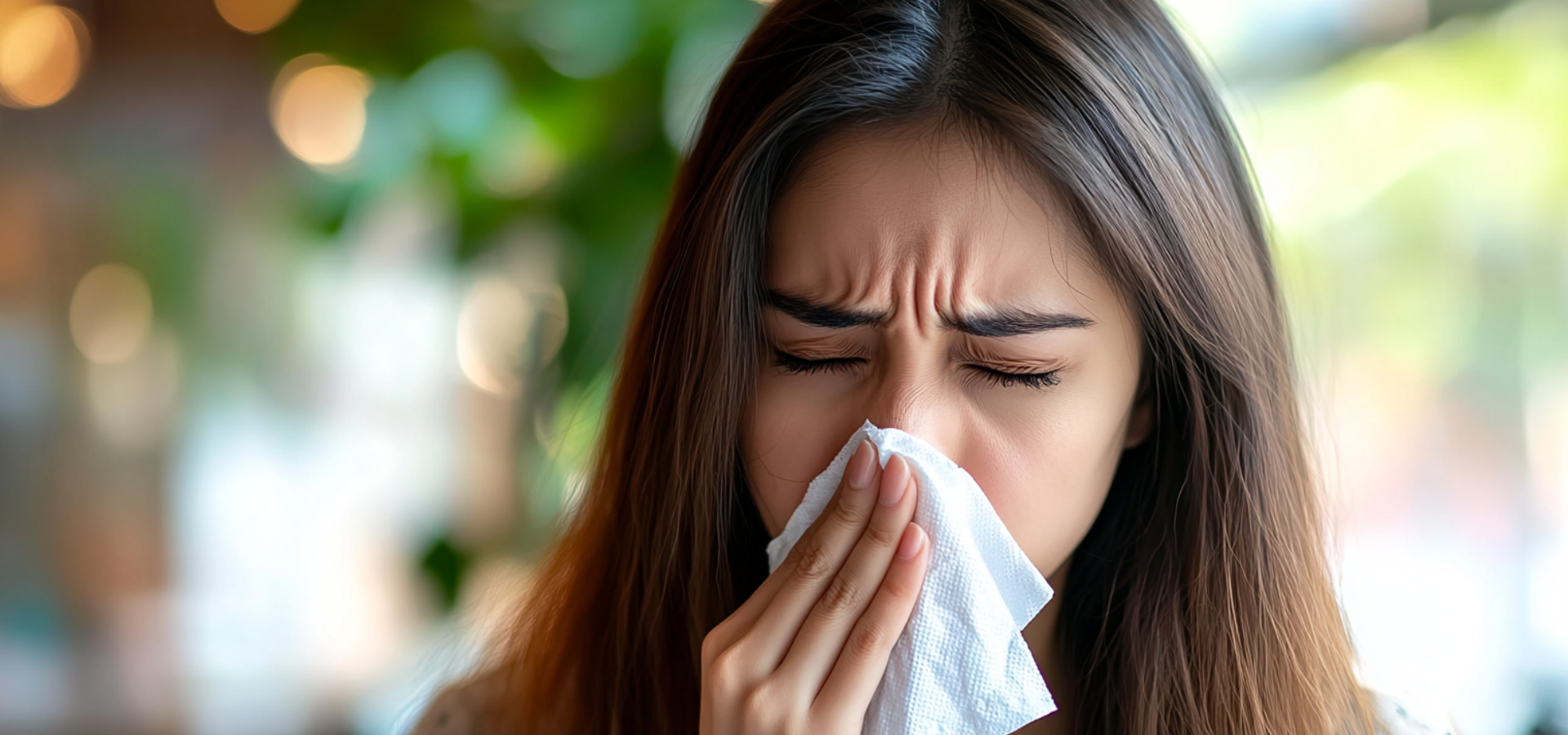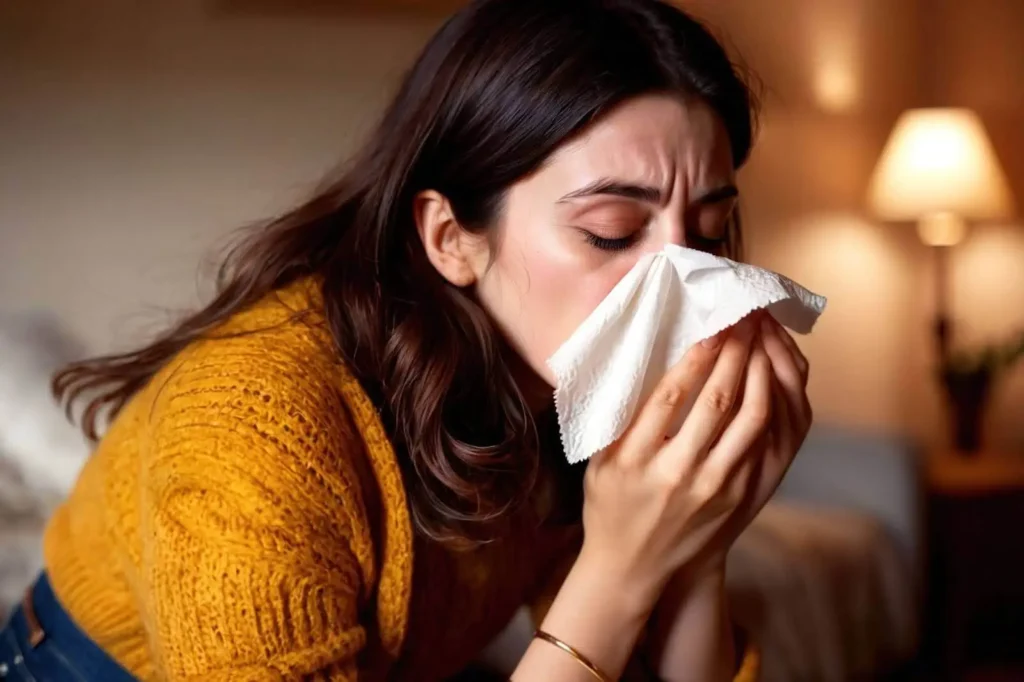
Does Allergies Cause Nosebleeds?
Allergy nosebleeds can be a bothersome and sometimes alarming symptom many people experience. For those who suffer from seasonal allergies, the discomfort is often compounded by the added inconvenience and concern of frequent nosebleeds. The connection between allergies and nosebleeds is not always straightforward, but understanding the causes, treatment, and preventive methods can help you manage them effectively.
Nosebleeds, or epistaxis, occur when the delicate blood vessels inside the nose break. This may happen for various reasons, but several specific factors come into play for allergy sufferers. Allergies cause inflammation and irritation in the nasal passages, leading to symptoms like sneezing, itching, and congestion. These symptoms, combined with environmental factors and certain medications, can make the nasal tissue more fragile and prone to bleeding.
In this guide, we’ll discuss the specific causes of allergy-related nosebleeds, explore effective treatment methods to stop them quickly and safely and outline practical steps to prevent them from happening in the first place. Whether you or a loved one is dealing with this issue, the information provided here will equip you with the knowledge needed to reduce the occurrence of nosebleeds.
Causes Of Allergy Nosebleeds
Dry Or Fragile Mucosal Tissue
Allergies often cause inflammation and irritation in the nasal passages. This inflammation can dry out or weaken the mucosal tissue lining your nose, making it more susceptible to bleeding. Environmental factors like dry air, especially during winter, or indoor heating can exacerbate this dryness.
Antihistamines And Decongestants
Antihistamines and decongestants are used to alleviate allergy symptoms. However, these medications can have side effects that contribute to nosebleeds. Antihistamines reduce the histamine response, which often leads to a drying effect on the nasal passages. Decongestants, while reducing nasal congestion, can constrict blood vessels, leading to dryness and increased fragility of the nasal tissue.
Irritation From Blowing Or Picking The Nose
Constantly blowing or picking your nose can irritate the mucosal lining, leading to frequent nosebleeds. When dealing with allergy symptoms like a runny or itchy nose, it’s tempting to blow your nose frequently or pick at it to alleviate discomfort. However, these actions can cause tiny tears in the already sensitive tissue, resulting in bleeding.
How To Treat A Nosebleed
Knowing how to treat a nosebleed properly can make the experience less stressful and more manageable. Here’s how you can address nosebleeds in adults and children:

Adults
To treat a nosebleed in adults, follow these steps:
- Stay Calm and Upright: Sit up straight and lean slightly forward. This position helps reduce blood pressure in the veins of your nose and prevents blood from flowing down the back of your throat.
- Pinch the Nose: You should pinch the soft part of your nose while using your index finger and thumb, just below the bony bridge. Hold this position for 10-15 minutes without releasing the pressure. Breathing through your mouth is essential during this time.
- Avoid Tilting Your Head Back: Contrary to popular belief, tilting your head back can cause blood to flow into your throat and potentially into your stomach, leading to nausea and vomiting.
- Apply a Cold Compress: Placing a cold compress or an ice pack on the bridge of your nose can help constrict blood vessels and reduce bleeding.
Children
Treating nosebleeds in children requires a similar approach with added care:
- Stay Calm and Reassure: Keep the child calm by reassuring them that everything will be okay. Anxiety can increase their heart rate and make the bleeding worse.
- Correct Positioning: Have the child sit up and lean slightly forward. Ensure they do not tilt their head back.
- Pinch the Nose: Gently pinch the child’s nose using your thumb and index finger, just below the bony part. Hold for about 10 minutes.
- Distract and Comfort: Engage the child in a calm activity or talk to them soothingly to keep them still and distracted during the process.
How To Prevent Nosebleeds From Allergies
Humidifying Your Environment
Keeping a humidifier in your home can add much-needed moisture to the air, preventing your nasal passages from drying out. This is particularly useful during winter when indoor heating systems can reduce humidity.
Proper Use Of Nasal Sprays
When using nasal sprays, it’s crucial to follow the instructions carefully. Overuse or improper use of nasal sprays containing decongestants can lead to rebound congestion and further irritation. Saline sprays can be a gentler alternative to keep your nasal passages moist.
Limiting How Much You Blow Or Pick Your Nose
Try to minimize how often you blow or pick your nose. If you need to blow your nose, use soft tissue and gentle pressure to avoid irritating the mucosal lining.
Avoid Hot And Spicy Foods
Hot and spicy foods can trigger nasal irritation and bleeding. Capsaicin, the compound found in spicy foods, can cause blood vessels to dilate in your nose, leading to increased blood flow and potential nosebleeds.
Avoid Hot Showers
Hot showers can dry out your nasal passages. Opt for lukewarm water to maintain moisture in your nose. Additionally, the steam from hot showers can temporarily increase blood flow to your nasal passages, potentially causing nosebleeds.
Do Not Take Aspirin Or Other Blood Thinners Unless They Are Medically Approved
Aspirin and other blood thinners affect your blood’s clotting ability, making it easier for nosebleeds to occur and harder for them to stop. Only take these medications if prescribed by a healthcare professional.
When To See A Healthcare Professional
If your nosebleeds are frequent, severe, or accompanied by other symptoms, it’s time to consult a healthcare professional at Frontier Allergy. We can help identify causes and recommend the appropriate treatments. Signs that you should ask for medical attention include:
- Nosebleeds that last longer than 20 minutes despite proper treatment
- Recurrent nosebleeds that occur several times a week
- Nosebleeds accompanied by dizziness, lightheadedness, or significant blood loss
- Presence of other symptoms such as unexplained bruising, frequent gum bleeding, or blood in urine or stools
We can perform a detailed examination, run necessary tests, and provide targeted treatment options to address the root cause of your nosebleeds.

Written/Reviewed by: Dr. Neha Reshamwala
NPI number: 1780874578
Page last reviewed: 02/25/2025


 All blog posts
All blog posts




